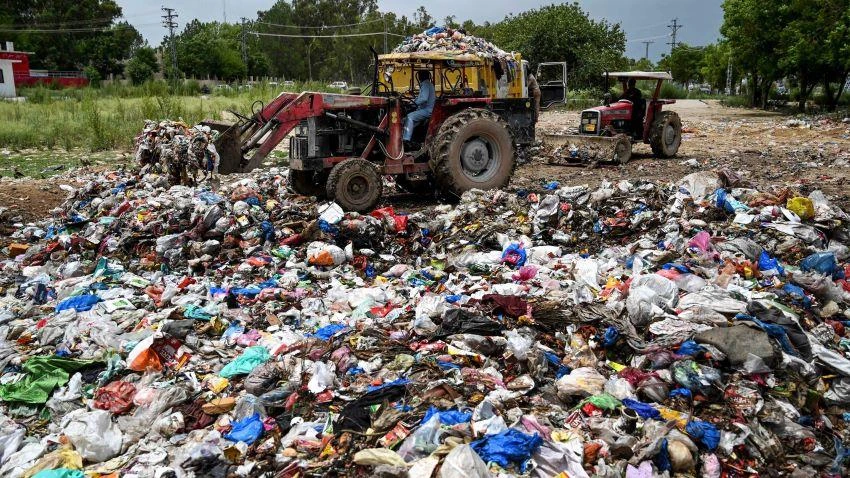
Bans on plastic bags are spreading across Pakistan as the nation finally opens its eyes to once-charming landscapes and free-flowing drains choked by ugly and destructive plastic.
The bans received a lift with a Sept. 3 tweet from Shaniera Akram, the Australian-born wife of Pakistan's retired cricket star Wasim Akram. In what amounted to an SOS, Ms. Akram asked for urgent help in cleaning up popular Clifton Beach in Karachi, which had become littered with garbage.
Akram tweeted about "kilometers of medical waste, including hundreds of open needle syringes among other things" being washed ashore. "Clifton beach at this moment is extremely dangerous and needs to be shut down," she wrote.
The local government of Karachi, Pakistan's largest city, immediately took notice, as the beach has always been a popular destination for the city's 24 million people.
In sharp contrast to lovely photos of the area that honeymooning couples have taken home over the decades, Akram's tweet included a stark video of the blighted beach that shocked the country. Within hours, Akram's message went viral on Twitter and TV.
Public interest in Akram's tweet comes amid increasing debate in Pakistan on the need to clean up the environment. On Aug. 14 during the country's independence day celebrations, Prime Minister Imran Khan's government banned the use of plastic bags in Islamabad, the country's capital.
According to media, the local government of Punjab on the border with India is also considering similar action.
Ahead of the ban, Khan's top adviser on climate change, Malik Amin Aslam, noted the grim reality of Pakistan's environmental issues. "Around 80% of drains across the country are choked due to plastic bags, posing the threat of urban flooding and disease among the masses," he said, adding that plastic bags "will remain in our ecosystem for one thousand years, as polyethylene bags do not decompose."
Western diplomats have also warned of the huge environmental challenge the country faces, due mainly to its large population of 215 million. "If there is one area where Pakistan's performance lags ... it's got to be population control, where there hasn't been much progress," said a diplomat, who spoke to the Nikkei Asian Review on condition of anonymity. "Unless Pakistan can control its population growth, the stress on the environment will just grow, and progress on conservation will be limited."
Maha Qasim, an independent expert on environmental issues, told Nikkei that it is too early to tell if the ban on plastic bags will be successful, though she thought the initiative was a step in the right direction. "It [plastic bags] is a big problem and has to be tackled," she said. Qasim noted that the government's decision to begin the initiative in Islamabad, where people are more environmentally conscious, has raised hopes of future success.
Senior government officials, however, warned that it may be years before the ban on plastic bags will be fully enforced over the entire country. One senior official who spoke to Nikkei said that Pakistanis are estimated to use up to 50 billion plastic bags a year. "As the population continues to grow, it's very hard to force or persuade people to give up using plastic bags," he said, adding that "to be able to make a difference, you have to address a number of different angles, including Pakistan's large population."
Separately, a businessman who owns a company that makes plastic bags told Nikkei on condition of anonymity that large businesses involved in manufacturing the bags were likely to resist the bans. "You can't just tell companies [which make plastic bags] to shut down their business overnight. This decision will take a long time to be enforced," he said.




















